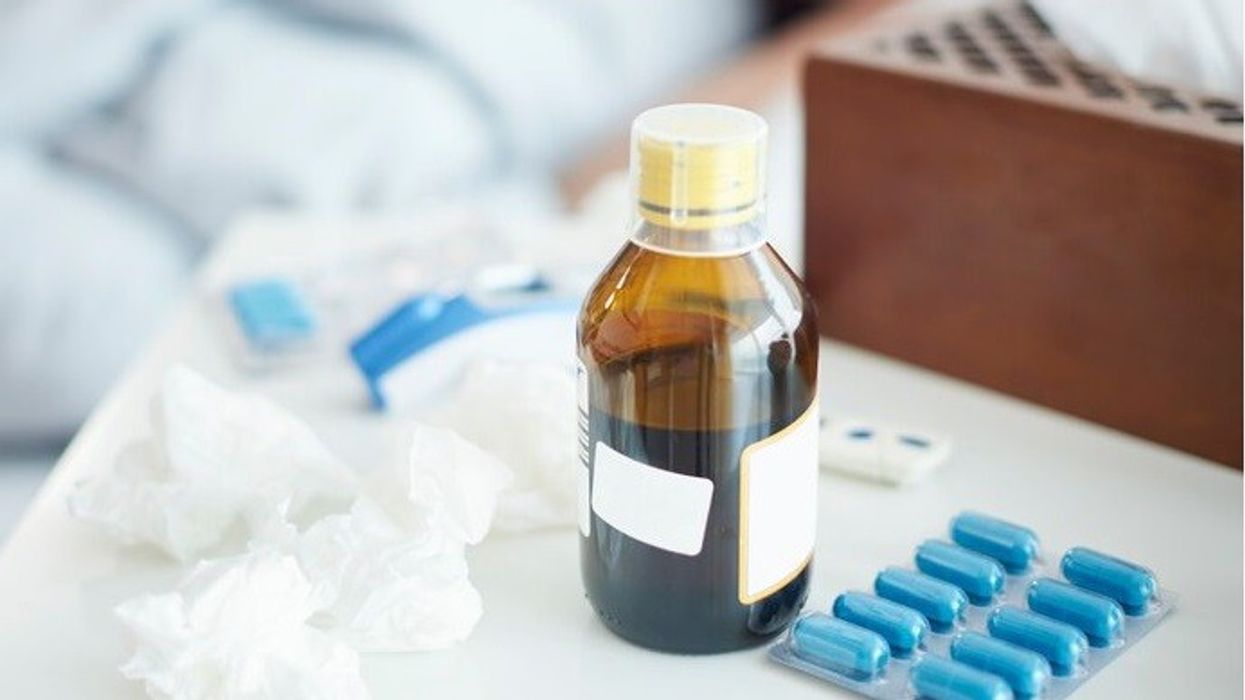The drug regulator has warned that the use of codeine in recreational drinks can increase the risk of addiction and potentially fatal overdose.
The Medicines and Healthcare products Regulatory Agency (MHRA) has reclassified codeine linctus, a medicine used for the treatment of dry cough, from a pharmacy-only medicine (P) to a prescription-only medicine (POM) owing to the risk of dependence, addiction, and overdose.
This implies that the dry cough syrup, which is also known as codeine oral solution, can only be dispensed upon the submission of a prescription at a pharmacy, rather than being accessible over the counter upon request.
Patients are cautioned that as an opioid medicine, codeine can be addictive, and the risk of addiction may increase, particularly with prolonged use over an extended period.
According to the medicines regulator, codeine is converted into morphine by the liver enzyme CYP2D6. In individuals identified as ultra-rapid metabolizers, this conversion from codeine to morphine occurs at a faster rate than in others.
“If you want to stop taking it and have been taking codeine linctus for a long time, then it is important to reduce the amount you take slowly with the help of your prescriber,” the agency said in its drug safety update issued on Tuesday, 20 February.
A recent safety review has revealed that the medication is being misused recreationally for its opioid effects, rather than for its intended use as a cough suppressant. This poses a significant risk of addiction and potentially fatal overdose.
For example, there have been reports of the use of codeine linctus as an ingredient in the recreational drink known as ‘Purple Drank’ (alternatively called ‘Lean’, ‘Sizzurp’, ‘Dirty Sprite’).
“As codeine linctus is used in varying amounts in this drink, consumers may not be aware of how much they are taking, and this can have serious risks such as loss of consciousness, respiratory suppression and death.
“Concomitant use with a central nervous system (CNS) depressant, such as alcohol, sedatives or other medicines, will further increase these risks,” the MHRA said.
Additionally, the regulator has received an increased number of reports concerning the sale of codeine linctus through unregulated and potentially illicit websites.
Healthcare professionals have also reported instances of individuals repeatedly requesting codeine linctus, suggesting potential addiction.
According to data from the Office for National Statistics, the annual number of deaths where codeine was involved increased from 88 in 2011 to 200 in 2021.
Risk minimisation measure
In October 2022, the Commission on Human Medicines (CHM) recommended the reclassification of codeine linctus as a prescription-only medicine (POM). The MHRA conducted a public consultation to gather opinions on this reclassification, which took place from July 18, 2023, to August 15, 2023.
According to the MHRA, the reclassification of codeine linctus ensures that the medicine is used safely and appropriately under medical supervision.
In its advice to healthcare professionals, the regulator highlighted that codeine linctus is only authorised for the treatment of dry coughs in adults and children aged 12 to 18 years without breathing difficulties and that it is not recommended for pain management.
While it may be effective in the treatment of chronic cough lasting over eight weeks, there is limited evidence supporting the drug's effectiveness in treating short-term cough, the MHRA said.
Patients are recommended to use alternative non-prescription cough medicines for short-term cough, including honey and lemon mixtures and cough suppressants, to soothe an irritated throat, or speak to a pharmacist for advice.
Those with a long-term cough are advised to see a healthcare professional for a review of symptoms as they may require further medical assessments to check for other conditions which could be causing the cough.
Patients are strongly advised not to buy codeine linctus from an unregistered website as it could be dangerous.
Professor Claire Anderson, President of the Royal Pharmaceutical Society (RPS), has described the medicines regulator’s decision to reclassify codeine linctus to a prescription-only medication as “a positive step to protect patient safety.”
“This decision not only addresses concerns about the misuse and addictive potential of codeine linctus but also underscores the importance of prioritising patient well-being,” she said.
Anderson revealed that many community pharmacists have already ceased stocking codeine linctus due to concerns about addiction and abuse.
She added that pharmacists who provide the medicine often experience aggression from patients if they refuse a sale.
Informing that there are many alternative non-codeine-based products available to treat a dry cough, Anderson reassured the public that community pharmacists and their teams will continue to provide expert advice on managing dry cough and guide people towards suitable treatments.













